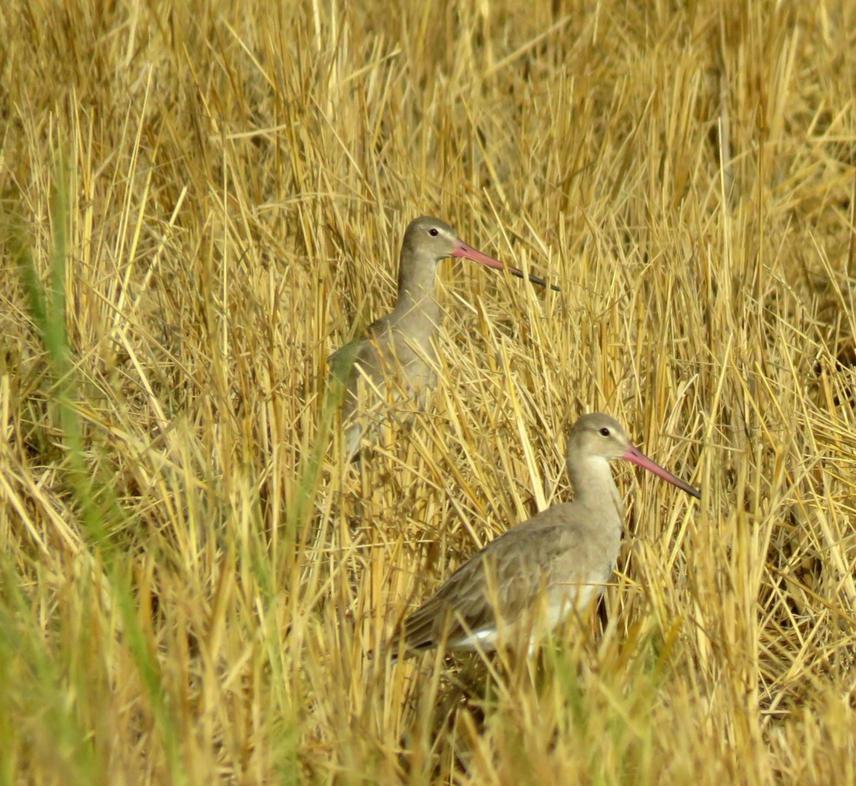Sara Lopes Pardal
Project will focus a major wintering area of Black-tailed Godwits to determine how dependent birds are on rice availability, evaluate their harvest impact and local hunting pressure.

Black-tailed godwits on the rice-fields of Guinea-Bissau. © Afonso Rocha.
Continental Black-tailed Godwits (Limosa limosa limosa) (hereafter godwits), a near-threatened migrant extremely dependent on freshwater habitats, particularly during the end of their wintering period (Nov-Dec), finds on the rice growing areas of Guinea-Bissau the only suitable habitat to forage. Unfortunately, through direct competition for rice, a vital resource for local populations, they also become hunting targets. With this project, we therefore aim to contribute for the understanding of the impact that godwits have on rice plantations, and evaluate hunting pressure. Project will benefit both local communities and conservation bodies by a close collaboration with Gabinete de Planificação Costeira (GPC) and Instituto da Biodiversidade e das Áreas Protegidas (IBAP), that will allow us not only to share knowledge and experiences, but also to provide technical skills and equipment (binoculars, bird guides, cameras, notebooks) that will help to build-up their conservation capacity, and to continue, by the end of this project, the follow-up of individual migratory movements on African countries where data is still lacking. These skills will also be key elements for the future establishment of ringing and/or tagging projects within the country and contribute to get reliable data on local hunting pressure, as well as identifying other possible threats over waterbirds and godwits in particular.
During the project development we will also bring income through acquisition of local products and services, and we plan to involve rural villagers, educating both adults and children for the importance of conservation and a sense of global responsibility as this (and other) migratory species, connect Africa with other countries in the world.
Scientifically and considering godwits, we expect to obtain important information about the carry-over effects of ecological changes such as habitat loss and changes in food availability, as well as pathogenic pressure and immunologic trade-offs, which we think is vital information when contextualized with the sharp decline of this species, and the ongoing effects of climate change over migratory movements and vector-borne ecology. Publication of several scientific papers is therefore a clear objective and this research will be presented in international conferences both to specialized and general audiences.